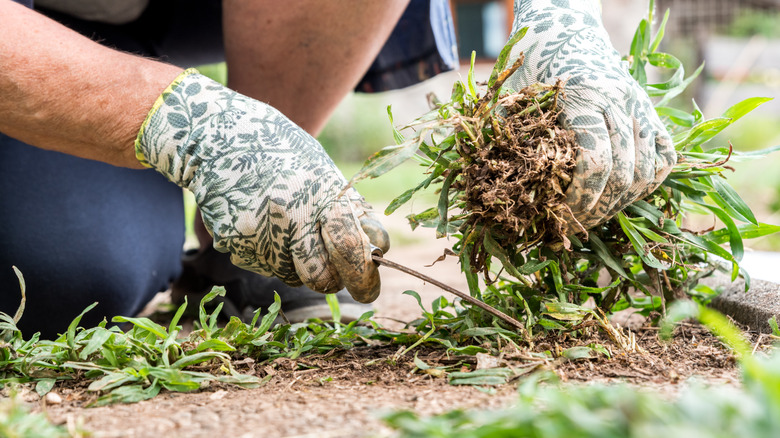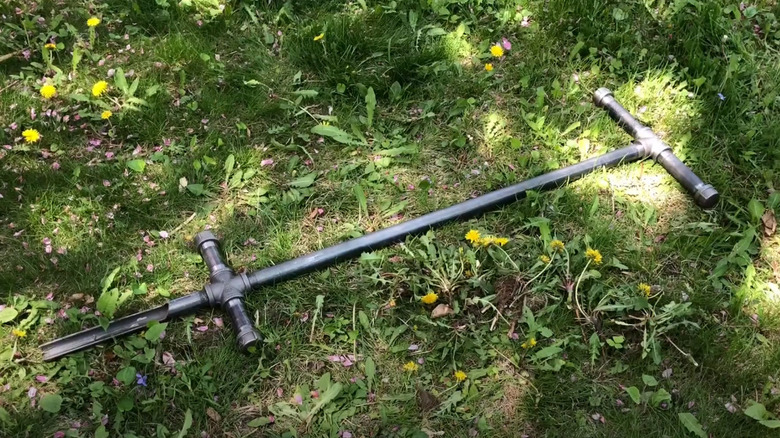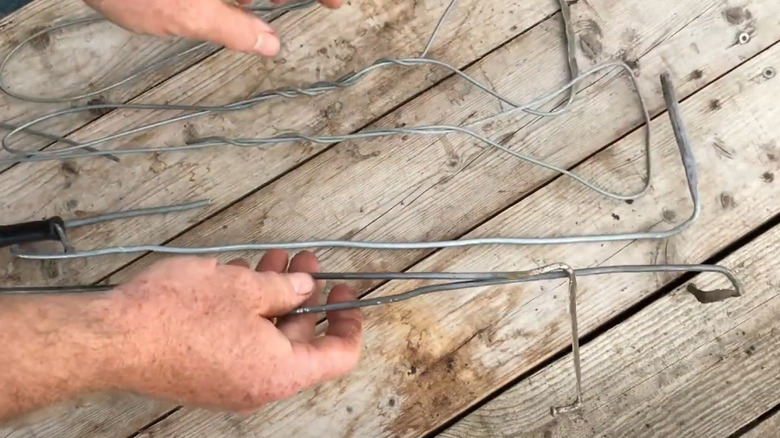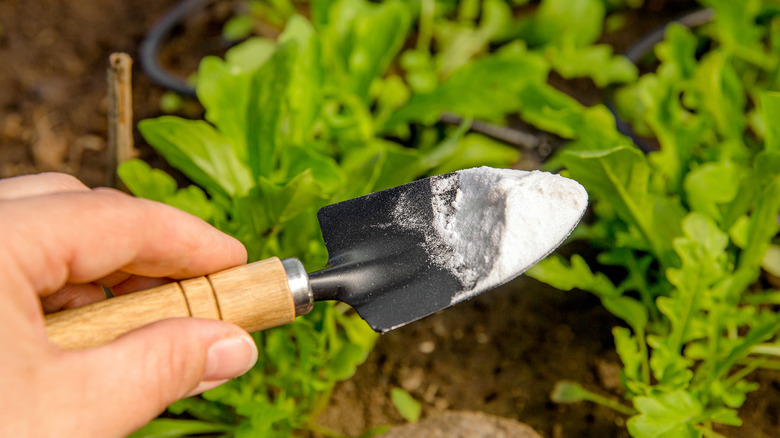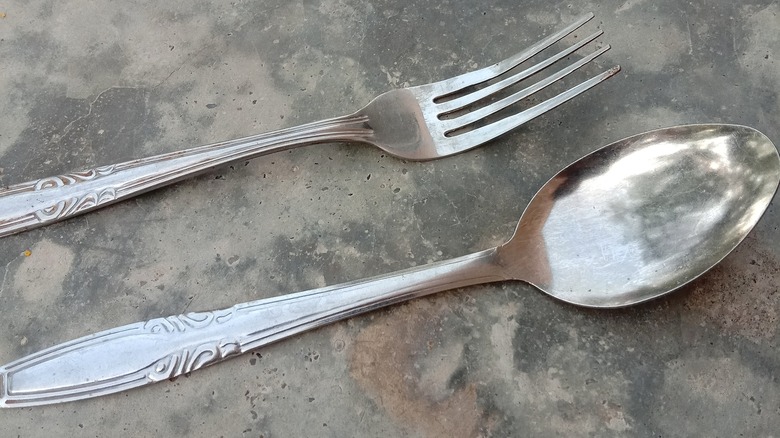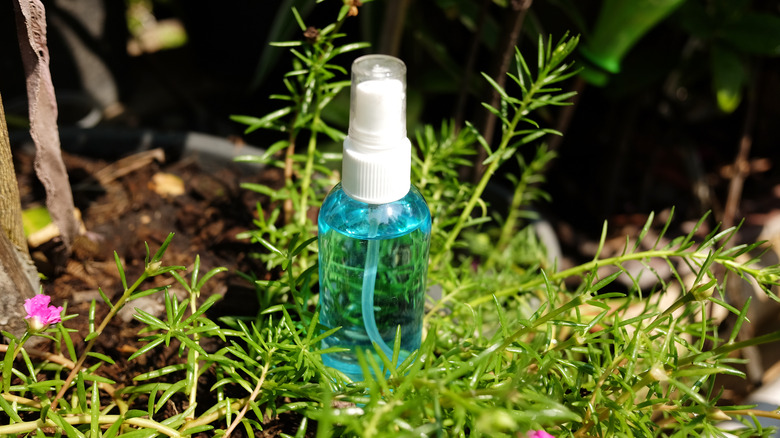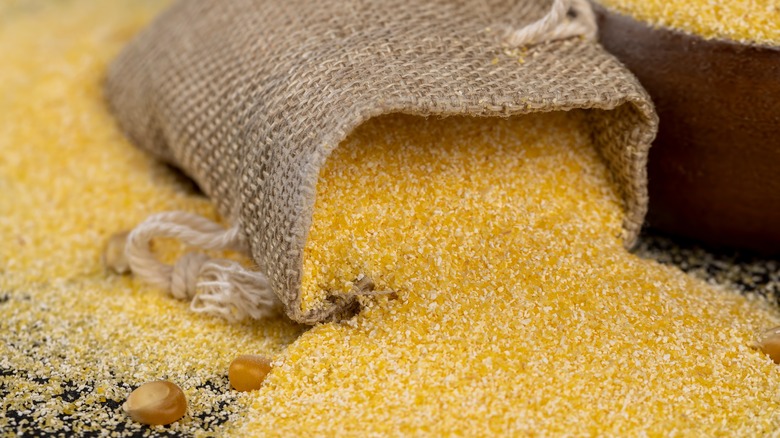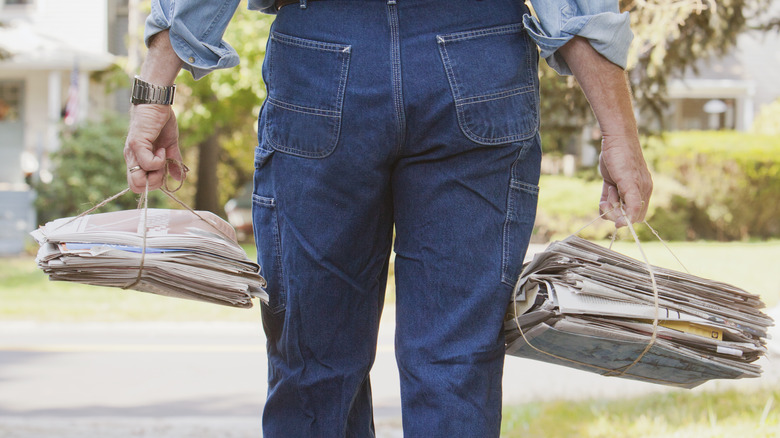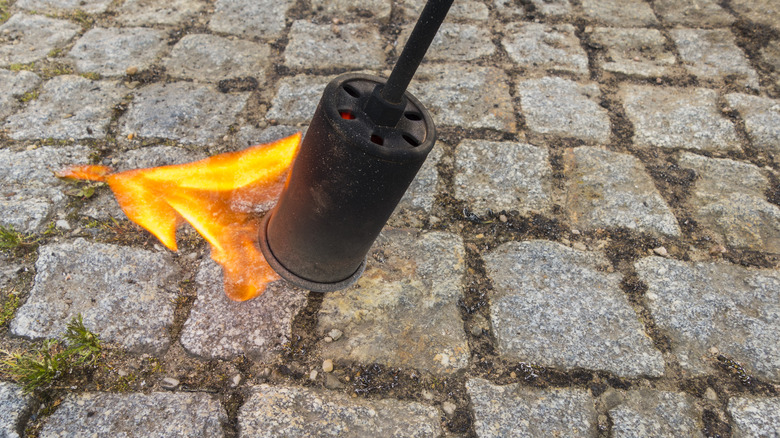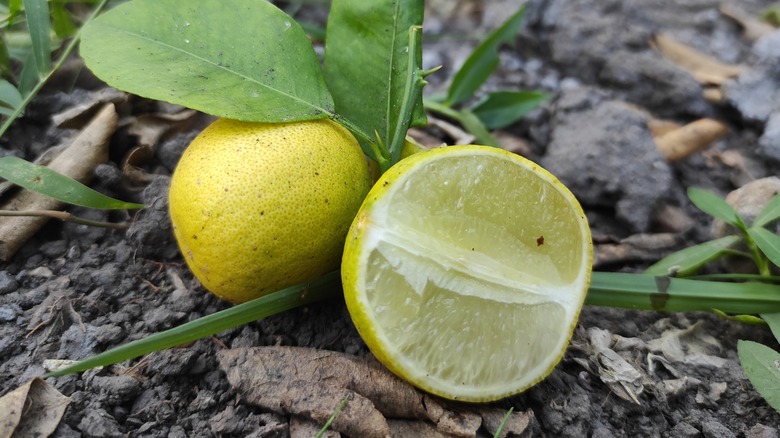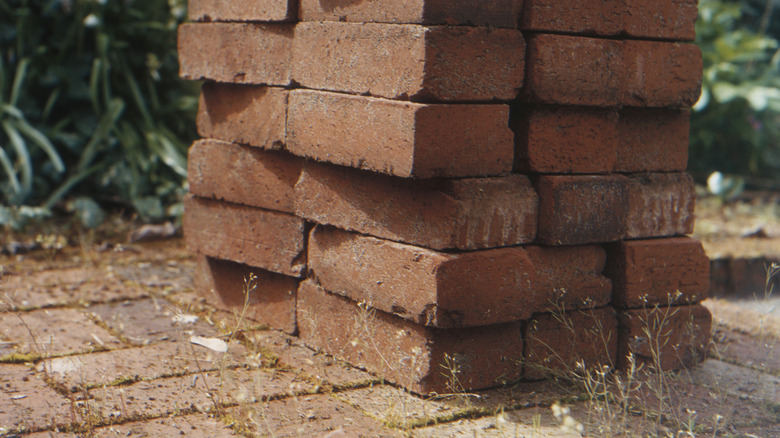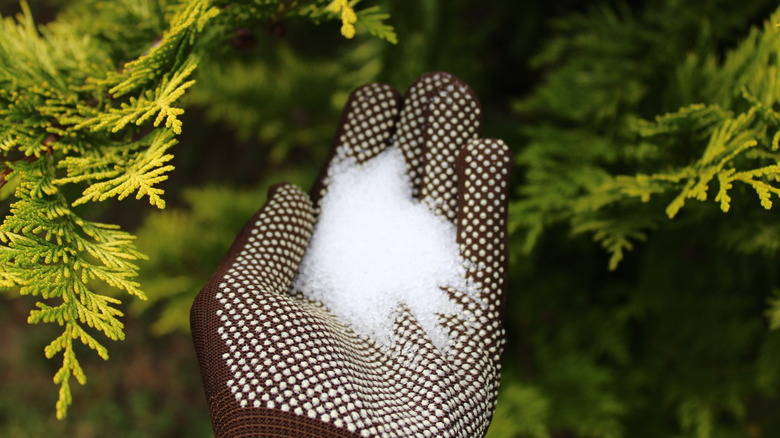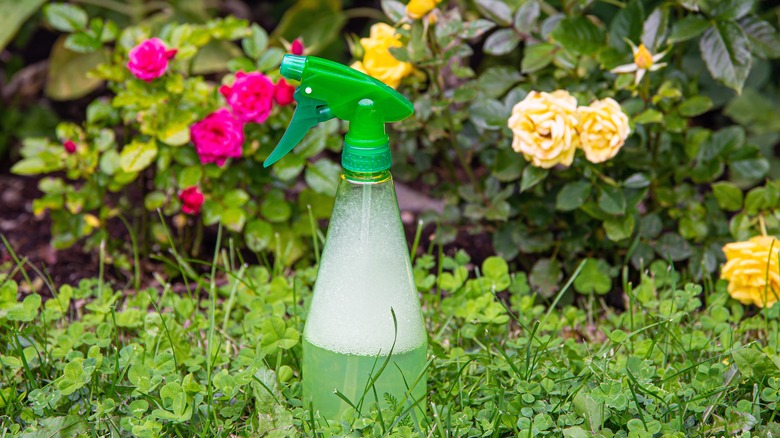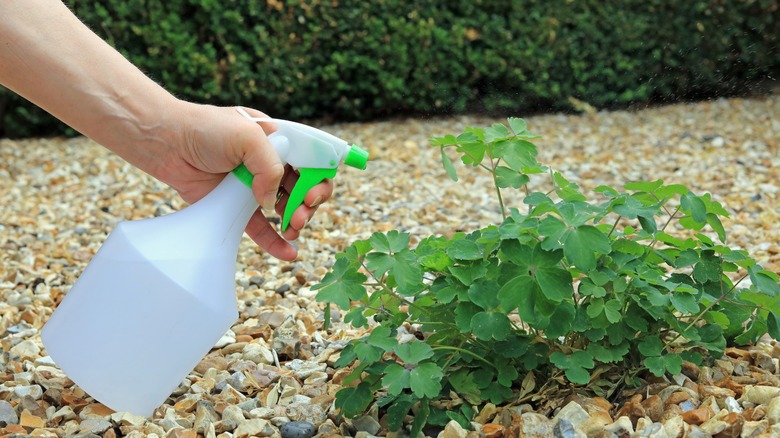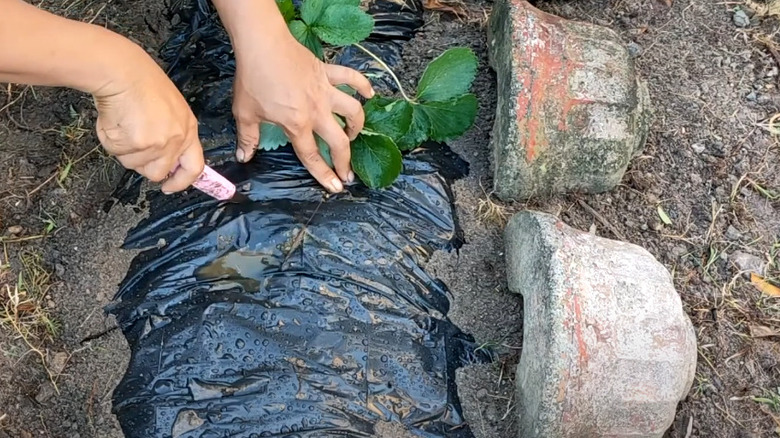15 Common Household Items That Can Be Repurposed To Help Control Weeds
Weeds are an unwanted evil that plagues many gardens and lawns, and while they may seem inescapable, the answer to your weed woes may be right at your fingertips ... or, well, in your cupboard at the very least. Surprisingly, there are many household items that can be repurposed to control and combat weeds in your yard, and some of them are quite unexpected. However, if you know how to leverage them, they can be an easy ally in the war against unwanted growth.
With dozens of weed varieties in existence in the United States, these different objects can be repurposed to combat all sorts of icky plant intruders. While many of these tools will help you mitigate weed growth or kill weeds altogether, bear in mind that often natural remedies won't get rid of weeds forever, or they will not remove of all the weeds you may need or want to eradicate. Be diligent in monitoring your garden's health, identifying what kind of growth your lawn or yard is experiencing, and choosing the tools that'll best fit with your maintenance style. A fork, some rubbing alcohol, or old sheets of newspaper may be just the ticket!
DIY a weed shovel with a pipe
Have some pipe left over from that last plumbing DIY? Then this hack is the best way to repurpose it in your garden. At the base of the pipe, cut out one side to create a thin shovel/aerator. If you're feeling advanced, attach two smaller pipe pieces perpendicularly to the top of the longer pipe and near the shovel. Now you have a weed eradicator that'll help take weeds out from the root. And if you opted to add the two smaller pipe pieces, you have handles and foot crossbars for leverage.
Use cardboard boxes to prevent weed growth
We're all guilty of hoarding those cardboard shipping boxes from time to time, but in this case, they're extremely useful for the mission at hand. Cardboard boxes make great weed mats to lay down in your garden. The cardboard suppresses weed growth and is an eco-friendly option as the cardboard breaks down over time. Just be sure to remove any shipping labels, tape, staples, or pins from the box before flattening and spreading them out in your garden! For even more effective weed control, layer mulch over the cardboard to help combat growth.
Repurpose plastic bucket handles into a weeding tool
This simple DIY weeder tool for your vegetable garden repurposes the wire metal handles from those hardware store plastic buckets. When those buckets are at the end of their lifespan, clip the metal handles off of them and bend the metal into shape for a homemade weed rake. For optimal weed removal, hammer down parts of the wire to create a sharper edge that'll help you hack through those tougher roots and coarser weeds. You can craft all different shapes and angles that work on various kinds of weeds too.
Spread baking soda in your garden to control weeds
Baking soda is one of those cupboard items that can be repurposed to use in your garden, not just in your cooking. Naturally, baking soda is composed of a relatively high salt content, and when sprinkled over weeds, it sucks out moisture, dehydrating it to the point of extermination. For best results, and to make sure you're not over-dehydrating your soil or accidentally altering its pH balance, mix the baking soda with water or use sparing amounts of it until you strike the right balance.
Grab a kitchen fork to dig out weeds
For some weeds, the best extermination solution is to pull them out by hand. But pulling weeds just got a whole lot easier realizing that this common kitchen item can help put less pressure on your poor fingers and hands. Use a fork from your drawer to dig out smaller weeds from areas where you need more of a precise weed extraction method like between other small plants or near densely planted vegetation. You're basically repurposing your silverware as a weed fork, but for a fraction of the specialized tool's price!
Rubbing alcohol is a DIY weed herbicide
Head into your medicine cabinet for this common household chemical that'll make for a great herbicide on those lawn weeds. Rubbing alcohol acts like a chemical desiccant for weeds, starving them of moisture and causing any unwanted grass growth to shrink and die. Be careful of this item's potency though, because it will indiscriminately dehydrate any plant it makes contact with. Put it in a spray bottle and apply it slowly, carefully, specifically to the bad stuff, avoiding any plants you actually like.
The cornmeal or polenta in your cupboard is a great weed suppressor
Cornmeal and polenta are two very similar household ingredients made from corn that you may have in your pantry. Though they are slightly different in grain consistently, both make for great weed mats in your garden. Spreading either corn product in your beds will stop seedlings from germinating and then spreading in the top layers of soil, preventing weeds before they even start. However, corn meal and polenta are effective at stopping all sorts of growth, so be sure not to spread on freshly planted veggie seeds.
Use newspaper as a weed fabric
Weed fabrics, often also called landscape fabrics, are particularly effective at blocking out needed sunlight for weeds to grow. And in this same vein, your weekly newspaper can do the same thing, but for much cheaper. Repurpose those old pages in your garden by spreading them out over low, ground-covering weeds like clovers, crabgrass, or spurge. Add another layer of mulch on top of the newspaper, like you would the cardboard boxes as well, to starve those weeds of sunlight as much as you can. This will stop weeds from sprouting and crawling.
Scorch weeds with a propane blow torch
Avid BBQ-ers or creme brûlée-makers, this weeding hack may be for you! Best for weeds that grow between pavers, along sidewalks, or on your driveway, you can use a blow torch to burn them away. While it doesn't eradicate the roots of the weeds, it's a fast and easy way to put a band-aid on weed growth and make your driveway look a whole lot better, really quickly. If you're using a larger blow torch, your propane canister will likely last you a while, making this a good go-to.
Lemon juice is another weed herbicide
The power of lemon juice and citrus oil is limitless, and here in the garden, this common household fruit can transform into a powerful herbicide. Squeeze some lemon juice into a spray bottle and take it to your garden beds. Spray generously and directly on the weeds; the citric acid will slowly work its way on to the leaves, killing them in 24 to 48 hours. This is a temporary solution however, since the roots will likely stay intact, so repeat this process to fully harness the acid's natural weed-killing powers.
Bricks can keep lawns weed-free
Bricks are a secret weapon against lawn weeds, often hiding right under our noses. Their weight helps smother weeds on lawns, halting the germination and spreading process before the weeds get out of hand. While this brick-laying hack may take you a couple of weeks to fully see results, and it may look strange to have a pile of bricks on your lawn, it's a highly effective way to cut off sun and water from weed seedlings. As a bonus, you're upcycling old building materials and not letting them go to waste, either!
Sprinkle salt for a natural weed killer
Common table salt is another effective weed fighter that you can find right in your kitchen. When salt gets absorbed into the weed's roots, it throws off the plant's water balance. Absorbing water straight from the source, the salt will eventually cause the weeds to dry out, wilt, and then die. It's a natural solution to your weed problem, but as a tip, combine salt with any of the other weed-fighting strategies on this list as salt alone may not be enough to battle weeds in the long run.
Household dish soap helps fight weeds
The same grease-fighting properties that makes dish soap so effective in cleaning that pizza tray make it is a hardworking weed killer. Though lethal to unwanted growth, dish soap is a popular weed-fighting hack since this household item is usually extremely safe and not toxic for gardeners or children playing in the yard. Dish soap is particularly effective at weed eradication when sprayed on a sunny day because the weed's cell wall breaks down on contact and dries up, a process that's faster in the sunlight.
White vinegar spray is an effective weed herbicide
Sometimes used in conjunction with dish soap or salt, vinegar also breaks down and dries out the weed's leaves. If you're hoping to just use vinegar and not have to bother with mixing a solution, however, then be sure to use a vinegar that has a higher acetic acid concentration. Unlike salt, though, vinegar by itself does not penetrate down to the root system, and only dries out the weed victim above the surface, so you may find yourself spraying more than once to make it as effective as it can be.
Plastic garbage bags can be repurposed as weed tarps
Mimic a fancy weed tarp with plastic trash bags in your garden. Flatten the bags, overlapping them if necessary, over the area where you want to keep weeds at bay. Cut a slit wherever you plan on planting a vegetable or otherwise wanted plant, and secure the bags down with heavy items like pots or rocks. The trash bags will create an ungrowable environment for weeds, robbing them of water and also heating up the ground under the bags to a point where weeds cannot survive, but your veggies can!
